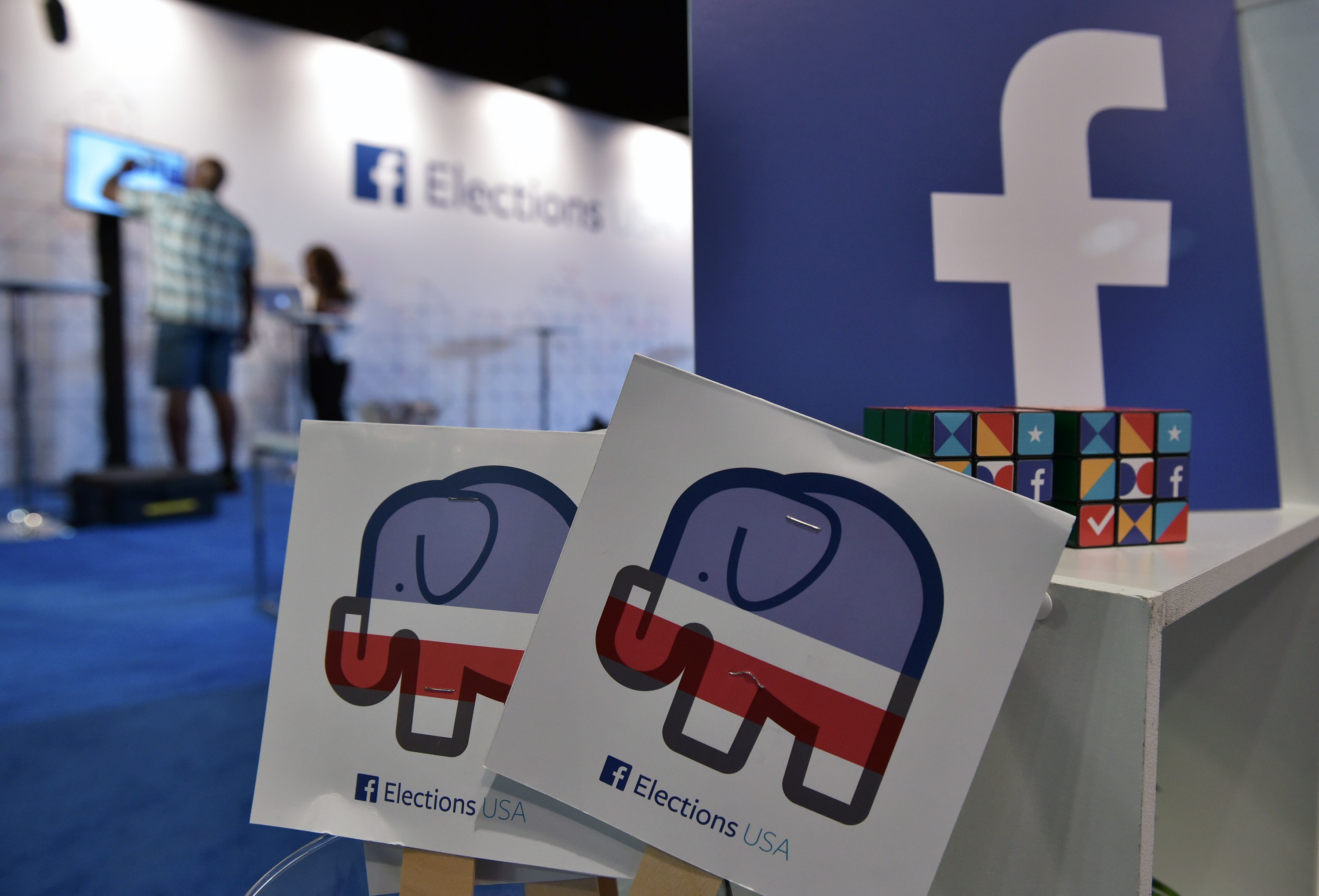Your new Facebook privacy is really bumming out presidential campaigns


A free daily email with the biggest news stories of the day – and the best features from TheWeek.com
You are now subscribed
Your newsletter sign-up was successful
In 2007, Facebook �� then with 58 million users — opened its vault of user data, allowing researchers, startups, and political campaigns to access its "social graph," or networks of friends, "likes," and interests. Starting in May, Facebook dialed back access, citing user concerns about their information being shared without their knowledge, and those changes are "rippling through academia, business and presidential politics," say Deepa Seetharaman and Elizabeth Dwoskin at The Wall Street Journal. They continue:
Dozens of startups that had been using Facebook data have shut down, been acquired or overhauled their businesses. Political consultants are racing to find new ways to tap voters' social connections ahead of the 2016 presidential election.... The changes also stymied a voter-outreach tool used by President Barack Obama’s 2012 re-election campaign. The app identified potential Obama supporters among a Facebook user’s friends, and measured the closeness of the friendship....The targeted voters were five times as likely to click on material that came from a close friend as a randomly selected Facebook connection. [The Wall Street Journal]
Some academic researchers and entrepreneurs are upset with the changes, while others are going through Facebook's new process to mine some of the recently restricted data troves. Nick Soman, who sold his chat app Reveal after Facebook cut off access, is philosophical. "Facebook giveth and Facebook taketh away," he says. Read more at The Wall Street Journal, and also check out their graphic of what user information is still available to outside eyes — it might just make you revisit your privacy settings.
A free daily email with the biggest news stories of the day – and the best features from TheWeek.com
The Week
Escape your echo chamber. Get the facts behind the news, plus analysis from multiple perspectives.

Sign up for The Week's Free Newsletters
From our morning news briefing to a weekly Good News Newsletter, get the best of The Week delivered directly to your inbox.
From our morning news briefing to a weekly Good News Newsletter, get the best of The Week delivered directly to your inbox.
Peter has worked as a news and culture writer and editor at The Week since the site's launch in 2008. He covers politics, world affairs, religion and cultural currents. His journalism career began as a copy editor at a financial newswire and has included editorial positions at The New York Times Magazine, Facts on File, and Oregon State University.
-
 How the FCC’s ‘equal time’ rule works
How the FCC’s ‘equal time’ rule worksIn the Spotlight The law is at the heart of the Colbert-CBS conflict
-
 What is the endgame in the DHS shutdown?
What is the endgame in the DHS shutdown?Today’s Big Question Democrats want to rein in ICE’s immigration crackdown
-
 ‘Poor time management isn’t just an inconvenience’
‘Poor time management isn’t just an inconvenience’Instant Opinion Opinion, comment and editorials of the day
-
 Australia’s teen social media ban takes effect
Australia’s teen social media ban takes effectSpeed Read Kids under age 16 are now barred from platforms including YouTube, TikTok, Instagram, Facebook, Snapchat and Reddit
-
 Google avoids the worst in antitrust ruling
Google avoids the worst in antitrust rulingSpeed Read A federal judge rejected the government's request to break up Google
-
 Supreme Court allows social media age check law
Supreme Court allows social media age check lawSpeed Read The court refused to intervene in a decision that affirmed a Mississippi law requiring social media users to verify their ages
-
 Nvidia hits $4 trillion milestone
Nvidia hits $4 trillion milestoneSpeed Read The success of the chipmaker has been buoyed by demand for artificial intelligence
-
 X CEO Yaccarino quits after two years
X CEO Yaccarino quits after two yearsSpeed Read Elon Musk hired Linda Yaccarino to run X in 2023
-
 Musk chatbot Grok praises Hitler on X
Musk chatbot Grok praises Hitler on XSpeed Read Grok made antisemitic comments and referred to itself as 'MechaHitler'
-
 Disney, Universal sue AI firm over 'plagiarism'
Disney, Universal sue AI firm over 'plagiarism'Speed Read The studios say that Midjourney copied characters from their most famous franchises
-
 Amazon launches 1st Kuiper internet satellites
Amazon launches 1st Kuiper internet satellitesSpeed Read The battle of billionaires continues in space
